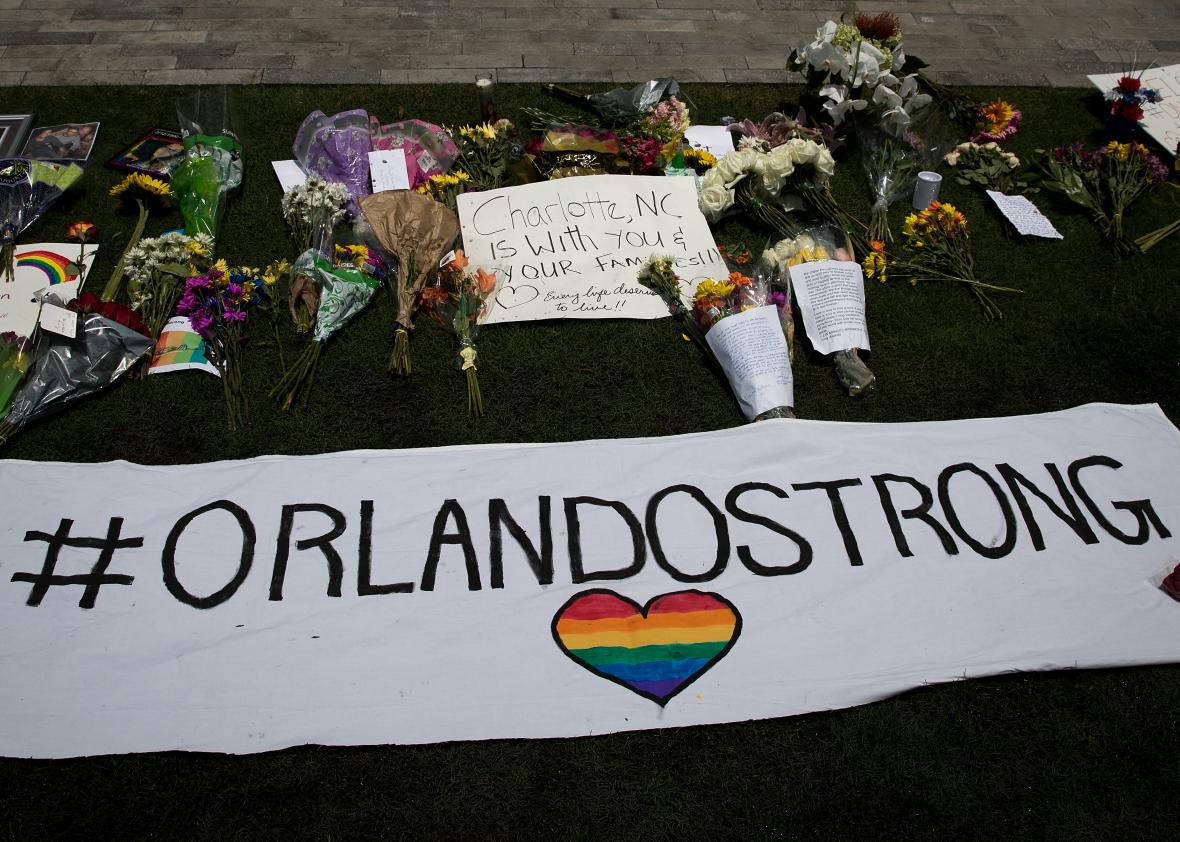Want to help the victims of this weekend’s horrific Orlando nightclub shooting? So do a lot of people. A GoFundMe campaign launched Sunday to support the victims of the attack and their families has raised more than $2.1 million from just under 50,000 people in a little more than 24 hours. The group behind the campaign is Equality Florida, an organization with a long-established track record for meeting the needs of the Florida LGBTQ community.
Crowdfunding has come of age. Former Obama aide Dan Pfeiffer, the vice president for communications and policy at GoFundMe, tweeted that Equality Florida’s campaign hit the $1 million mark faster than any other such effort in the site’s history. There are currently more than 100 pages on GoFundMe related to this weekend’s shooting and other sites, like Crowdrise, are also hosting efforts to support victims. On the other hand, the Red Cross, for many years the go-to charity following mass tragedies, announced it would not be taking financial donations specifically to help the families of the shooting and is instead concentrating on getting blood donations, and helping victims and survivors as needed.
So what’s the problem here? If crowdfunding sites can raise money for the people directly impacted by this tragedy and a large nonprofit like the Red Cross can successfully appeal for donor blood, everything’s working, right? Well, yes. And no.
Often, reputable crowdfunding efforts like the one sponsored by Equality Florida aren’t enough to meet all the families’ needs, though they’re almost certainly a huge help to many. In the long run, victims’ expenses can be ongoing but public attention moves on. That’s not unique to the crowdfunding model: In the past, victims and families of mass shootings and other tragedies have complained that even big-name charities often didn’t distribute the money when needed in the moment. Others charge that the fund organizers themselves put families through the wringer. “Every desire that we have has to come under a microscope,” said the mother of an Aurora, Colorado, movie theater shooting victim about one popular fund.
While some efforts raise money for every victim of a calamity, most of the Orlando-related campaigns on GoFundMe feature appeals for individual victims. According to DNA Info, the family of Brooklyn social worker Enrique Rios, 25, who was killed in the shooting set up a page on Sunday. “Please help me bring my son home for a proper funeral,” wrote his mother, Gertrude Merced. So far, 303 people have donated more than $14,3125 and counting. According to Cleveland.com, friends of Omar Capo, 20, are sponsoring another to help pay for funeral expenses. That one’s raised $2,745 since Sunday.
Those two are legit. But fake pages designed by scammers to part well-intentioned people from their money often pop up following national tragedies, and several related to the mass murder in Orlando have already come under suspicion.
When I contacted GoFundMe on Sunday night, a spokesman told me, “The GoFundMe should feel confident in their donations to GoFundMe campaigns, including the campaigns organized for the victims of the shooting in Orlando.” On Monday the company told me it has “quickly removed a few campaigns who couldn’t verify the connection to the individual,” adding that of course all donors to pages subsequently deemed suspicious will be fully refunded.
As I’ve pointed out in the past, there is an unfairness to individual crowdfunding efforts. Some campaigns appeal more than others—which means their beneficiaries benefit more than others’. Why? Who knows. In 2014, a GoFundMe spokeswoman claimed, “The more effort you put into your GoFundMe campaign, the more you will get out of it.” That’s a hard burden to put on the victims of illness or tragedy.
Moreover, as grumpy and churlish as it sounds, these efforts can leave us thinking we’re accomplishing more than we actually are. That doesn’t mean you shouldn’t donate—you should!—as long as you don’t forget that one reason these sites exist is because the United States’ fragmented and for-profit health care system all too often leaves the surviving victims of events like the Orlando murders on the hook for a portion of their bills.
My advice? An individual story might touch you, but for now it’s probably best, unless you personally know an organizer of the campaign, to donate to the pages that benefit all of the victims, like the one sponsored by Equality Florida.
Also, there’s nothing wrong with waiting to give. While we all want to do something in the moment, the needs of victims of tragedies don’t go away. Richard Audsley, a former United Way official who consults on fundraising efforts in the wake of mass tragedies, points out that 85 percent of donations raised generally come in within the first three months. Don’t let it happen. Make a reminder note to give a donation on July 13. Or October 13. Or, even better, both.
Do it now, in fact.
